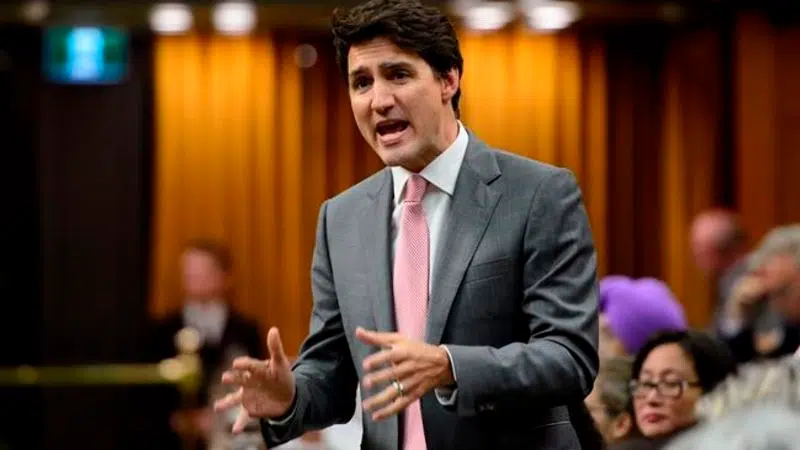
Trudeau calls out Tory premiers for ‘playing games’ with national unity over C-69
OTTAWA — Prime Minister Justin Trudeau says it is “absolutely irresponsible” for conservative premiers to threaten to tear Canada apart if the government doesn’t accept all the Senate’s amendments to new environmental-assessment legislation.
The Liberals are expected to say as early as Wednesday what they want to do with the 187 amendments made to Bill C-69 in the Senate last week. The bill would revamp the way the federal government evaluates major infrastructure projects, from pipelines to interprovincial highways.
The conservative premiers in Alberta, Saskatchewan, Manitoba, Ontario and New Brunswick, and the non-partisan premier of the Northwest Territories, wrote an “urgent” letter to Trudeau Monday telling him that he must accept every last one of the amendments or he will be threatening national unity.
They say Bill C-69 will make it virtually impossible to ever build another major pipeline in Canada and will drive away jobs and investment in the energy sector.



